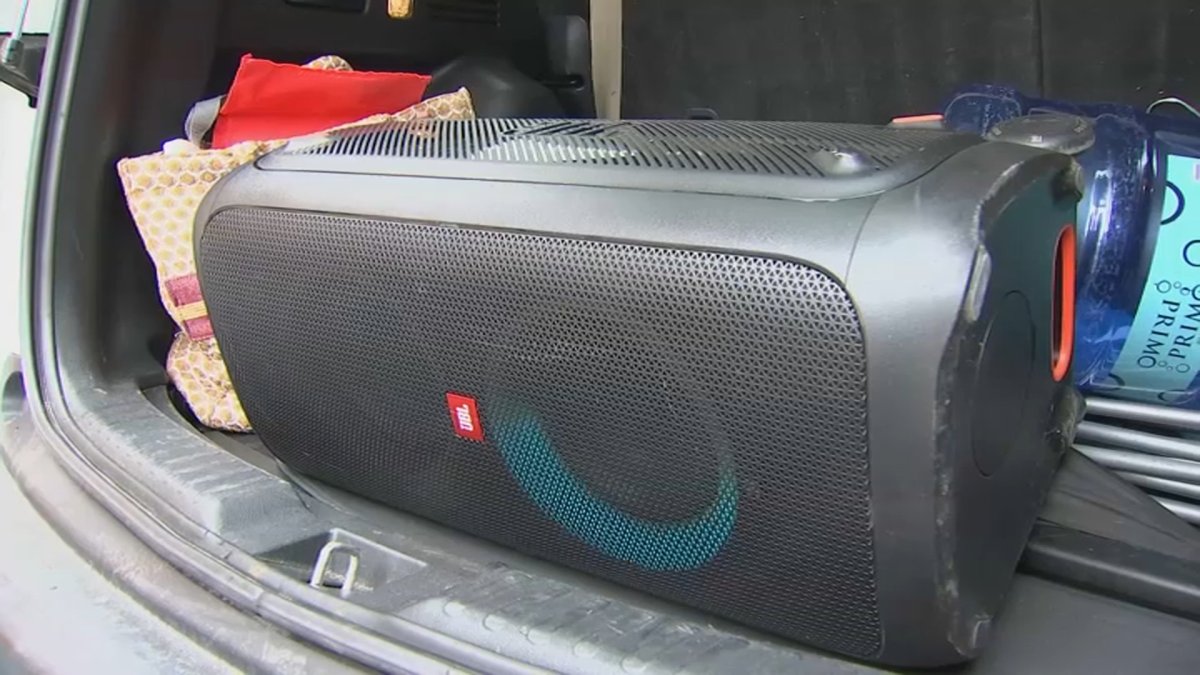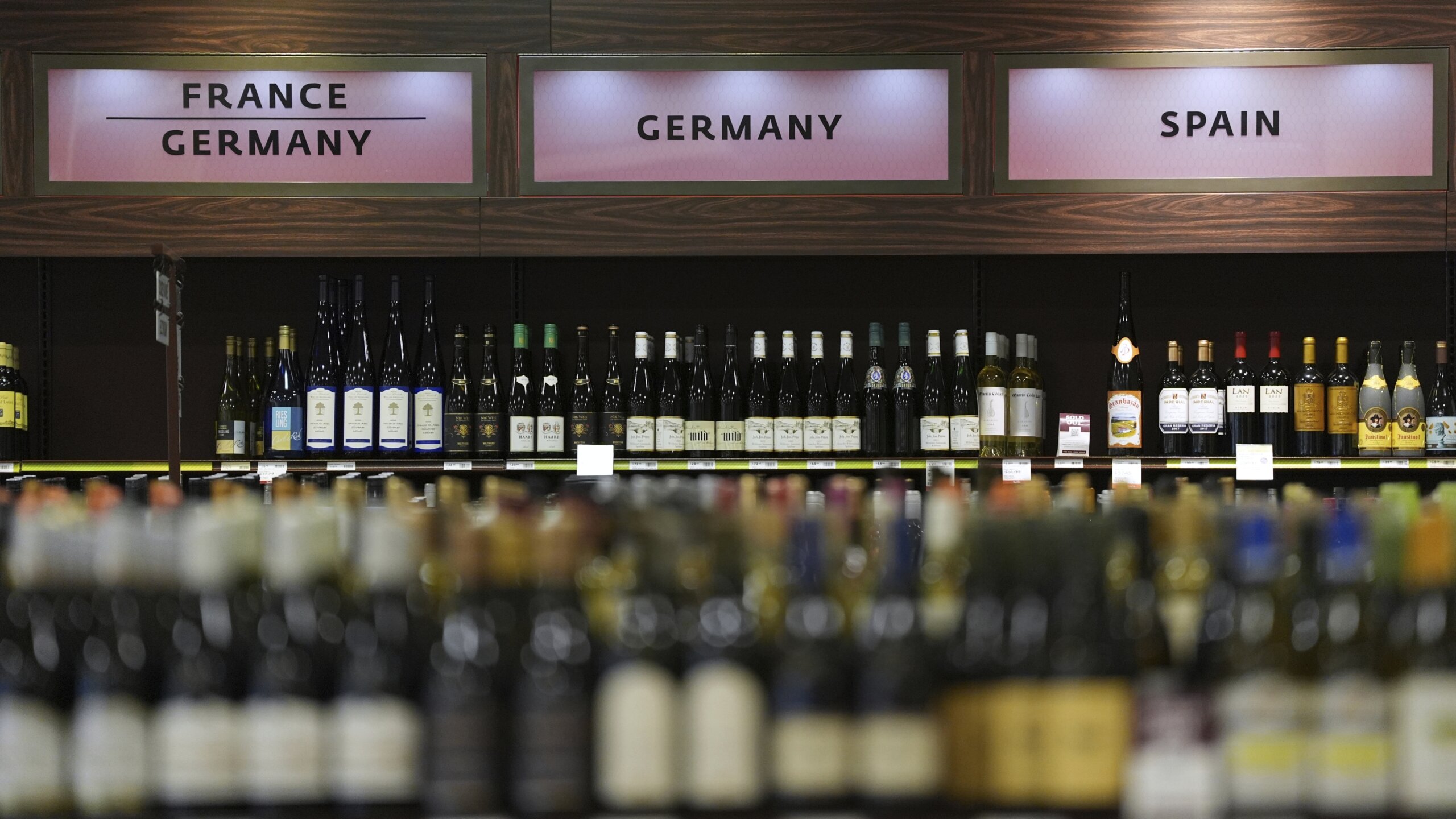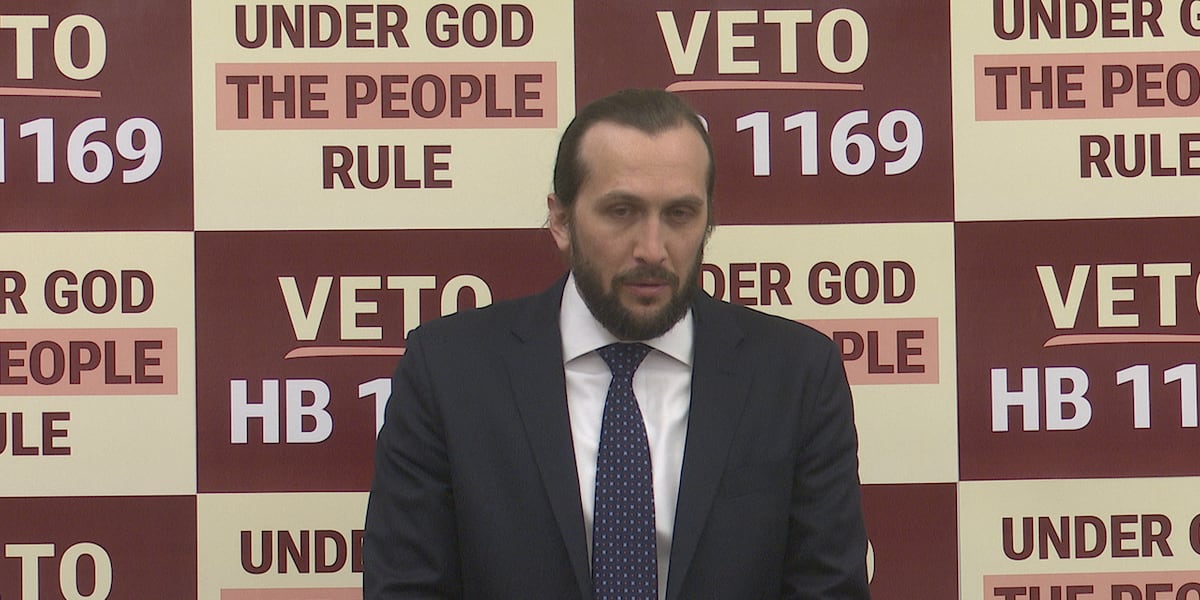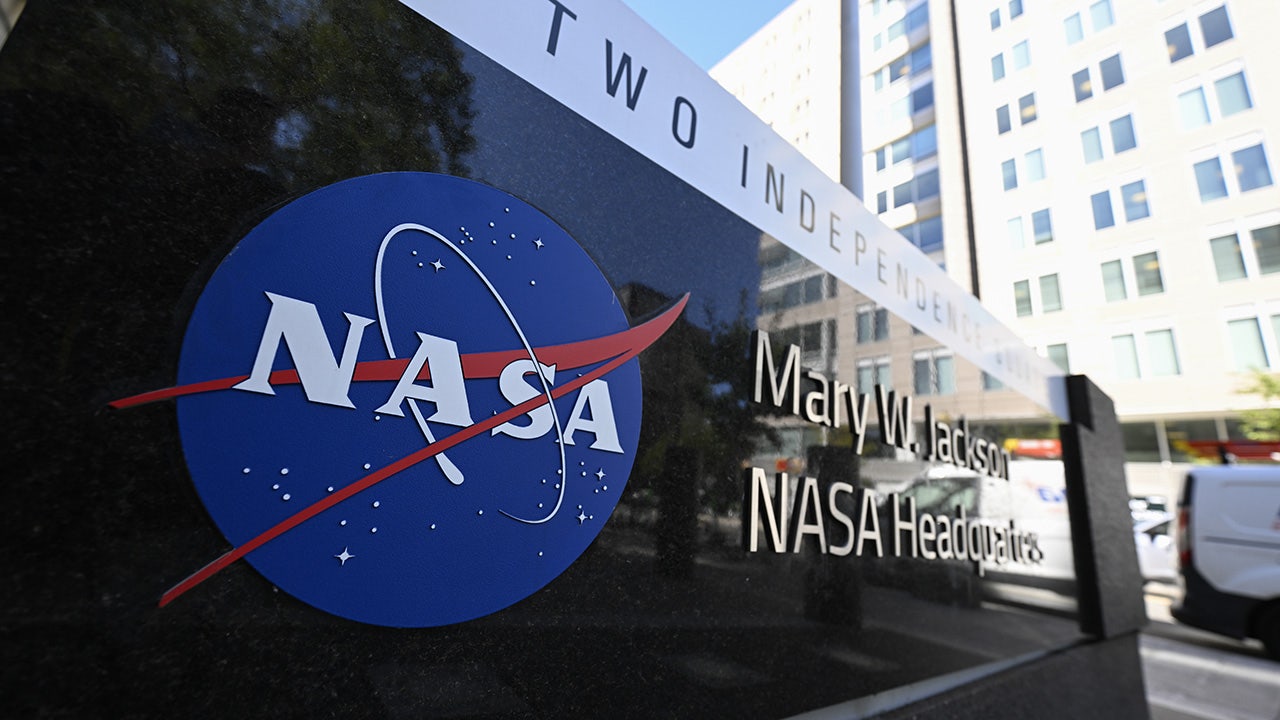World
EU watchdog demands answers on controversial Tunisia migration deal
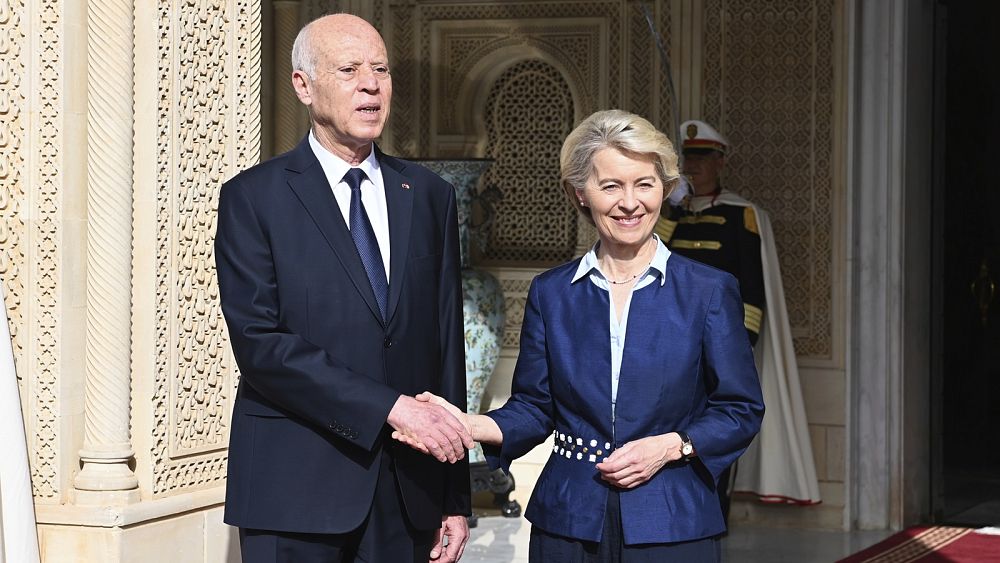
The European Ombudsman is seeking clarifications on the contentious EU-Tunisia deal signed in July amid concerns of human rights violations.
The watchdog body, led by Emily O’Reilly, wants the European Commission to spell out what sort of safeguards, if any, have been introduced in the agreement to make sure the Tunisian authorities respect fundamental rights in their operations to curtail irregular flows of migration.
The Commission has until 13 December to explain whether it carried out an “impact assessment” before concluding the deal on behalf of all EU states and how it intends to review the impact on human rights over time.
“The Ombudsman also asked whether the Commission has defined criteria for suspending funding if human rights are not respected,” the watchdog said in a press release, noting that “concerns have been raised about the agreement.”
The letter comes a day after Tunisia denied entry to a five-member delegation of the European Parliament and further increases scrutiny over the contentious deal.
So far, the EU-Tunisia agreement has earmarked over €700 million in bloc funds to help Tunisia stabilise its economy, manage migration and boost renewable energy, and includes the possibility of an additional €900 million in macro-financial assistance.
‘Documented abuses’ against migrants
While no amount of money has been released yet, the agreement has attracted intense criticism from the European Parliament and civil society organisations.
They say Tunisia, under the strong-arm leadership of President Kais Saied, has repeatedly engaged in human rights violations and orchestrated the forceful deportation of sub-Saharan migrants, many of whom have been found abandoned in the middle of the desert near the Libyan border.
Shortly after the signature of the deal, Human Rights Watch released a report detailing the “documented abuses” that Tunisian law enforcement had committed against black Africans, such as “beatings, use of excessive force, some cases of torture, arbitrary arrests and detention, collective expulsions, dangerous actions at sea, forced evictions, and theft of money and belongings”.
Saied has been a particular target of criticism. The Tunisian president has publicly expressed his racist views of sub-Saharan migrants and denounced what he calls a “criminal plan to change the composition of the demographic landscape of Tunisia,” incendiary words that echo the far-right conspiracy theory known as the “great replacement.”
Despite the concerning evidence, the European Commission pushed ahead with the signature of the memorandum, arguing it was necessary to establish a closer partnership with a country that represents a gateway for thousands of migrants who every year attempt to enter the bloc, mainly through Italy, and request asylum.
European Commission President Ursula von der Leyen has touted the deal as a blueprint for similar arrangements with neighbouring countries.
“We have signed a partnership with Tunisia that brings mutual benefits beyond migration; from energy and education, to skills and security,” said von der Leyen in her State of the Union speech. “And we now want to work on similar agreements with other countries.”
€105 million for migration
Specifically, the memorandum allocates a financial envelope of €105 million to combat anti-smuggling operations, reinforce border management and speed up the return of asylum seekers whose applications are denied.
The money, which is the crux of the Ombudsman’s concerns, is expected to be provided to the Tunisian authorities in the form of search-and-rescue boats, jeeps, radars and drones; and to international organisations that work on the ground, like the International Organization for Migration (IOM) and the United Nations Refugee Agency (UNHCR).
The promised €105 million is still under negotiations and needs to be translated into a legal instrument before disbursements begin, said a European Commission spokesperson. Member states will be consulted across the process.
“We will cooperate with the Ombudsman and we will be replying in due course,” a spokesperson said on Friday afternoon. “Broadly speaking (…) all EU contracts obviously have standard clauses of human rights.”
Senior EU officials have previously said payments would not be linked to any numerical target of annual readmissions or reduction of arrivals, and Tunisia would not be asked to host in its territory non-Tunisian nationals who have been denied asylum in the bloc.
“Tunisia is not foreseen to be a collecting point for irregular migrants,” a senior EU official said in July, speaking on condition of anonymity.

World
‘7th Heaven’ Actors Listen to Co-Star Stephen Collins’ Sexual Misconduct Confession for the First Time: ‘He Would Be a Dead Man if That Was My Child’

“7th Heaven” actors Jeremy London and Kyle Searles reckon with co-star Stephen Collins‘ sexual misconduct for the first time in an episode of ID Discovery’s upcoming series “Hollywood Demons” (via The Daily Beast). Collins starred as patriarch Eric Camden on all 11 seasons of the family drama series. He confessed in 2014 to prior sexual misconduct with three underage girls.
Searles, who appeared in the last four seasons of “7th Heaven ” as Mac, says in “Hollywood Demons” that he admired Collins during the making of the show, explaining: “He would drive to work in a beautiful Toyota Prius every single morning when the man was making enough money that he could have been driving up in a Bentley. He could have been decked-out, dressed in the nines, but he was wearing what Jay Leno typically wears, with the blue jeans shirt and jeans. I always felt like I want to be like that. I need to model myself after him more.”
The documentary then shows Searles tearing up while watching Collins confess to sexual misconduct. The actor reacts to the admission by saying: “This is the first time that I’ve ever thought that he’s full of shit.”
“I have like, a knot in my stomach,” Searles adds. “My whole world changed when I had kids, my whole world view. And certainly my tolerance for this. I think that goes without being said. I just think that maybe I put him up on a professional pedestal a bit too much.”
London starred on “7th Heaven” for two seasons, debuting as minister Chandler Hampton in Season 7. He remembered Collins being “America’s dad” during the show’s run and said that his reaction to the allegations against Collins was that people were “messing with somebody that I love and care about.” London claims he was “fired” from “7th Heaven” after a DUI arrest in 2010. He was also accused of battering his ex-wife. London says these experiences painted him as “a bad person” and thus made him hesitant to believe Collins was capable of sexual misconduct since “I was put in the same position and I didn’t do anything.”
When “Hollywood Demons” producers finally play Collins’ confession to London, he reacts by saying: “It’s tough. It’s hard. I’m a dad, first and foremost, above everything else. And so my first thoughts always go to the children. Stephen Collins would be a dead man if that was my child.”
Collins confessed to sexual misconduct in a 2014 interview with Katie Couric that aired on ABC’s “20/20.” He admitted to exposing himself in 1973 to a 10-year-old girl. Collins was 25 years old at the time and told Couric that he immediately knew he had done something “unthinkably wrong.” He also confessed to exposing himself to a 13-year-old girl in 1982 and to a 14-year-old girl in 1994, although Collins stressed to Couric that he is not pedophile and said: “I’m absolutely not attracted, physically or sexually attracted to children.” He was never charged for the sexual misconduct because the cases were beyond the statute of limitations.
In the fallout from his confession, Collins was fired from his role in the comedy sequel “Ted 2” and was dropped from his recurring role on the ABC drama series “Scandal.”
“7th Heaven” actors Beverley Mitchell, David Gallagher and Mackenzie Rosman played three of Collins’ children on the series and addressed his sexual misconduct last year while starting a rewatch podcast for the show titled “Catching Up With The Camdens.”
“All forms of abuse, sexual abuse of any kind, it’s inexcusable,” Gallagher said. “And victims of abuse need to be shown compassion and they should be given support.”
“Hollywood Demons” airs March 24 on ID Discovery. Stream it online through Philo.com.
World
Sudan's military says it has retaken Khartoum's Republican Palace, seat of country's government

Sudan’s military on Friday retook the Republican Palace in Khartoum, the last heavily guarded bastion of rival paramilitary forces in the capital, after nearly two years of fighting.
The seizure of the Republican Palace, surrounded by government ministries, was a major symbolic victory for Sudan’s military against the paramilitary Rapid Support Forces — though it likely doesn’t mean the end of the war as the RSF holds territory in Sudan’s western Darfur region and elsewhere.
SUDAN’S ARMY DENOUNCES VIDEO ALLEGEDLY SHOWING ITS TROOPS CARRYING SEVERED HEADS OF ENEMIES
Social media videos showed Sudanese soldiers inside the palace, giving the date as the 21st day of Ramadan, the holy Muslim fasting month, which corresponds to Friday. A Sudanese military officer wearing a captain’s epaulettes made the announcement in the video and confirmed the troops were inside the compound.
The palace appeared to be in ruins, with soldiers’ stepping on broken tiles. Troops carrying assault rifles and rocket-propelled grenade launchers chanted: “God is the greatest!”
Khaled al-Aiser, Sudan’s information minister, said the military had retaken the palace in a post on the social platform X.
An army soldier walks in front of the Republican Palace in Khartoum, Sudan, after it was taken over by Sudan’s army Friday, March 21, 2025. (AP Photo)
“Today the flag is raised, the palace is back and the journey continues until victory is complete,” he wrote.
Later, curious residents wandered through the palace. Walls stood pockmarked by rifle rounds. Smears of blood led to dead bodies, covered haphazardly with blankets.
Palace’s fall a symbolic and strategic moment
The fall of the Republican Palace — a compound along the Nile River that was the seat of government before the war erupted and is immortalized on Sudanese banknotes and postage stamps — marks another battlefield gain for Sudan’s military, which has made steady advances in recent months under army chief Gen. Abdel-Fattah Burhan.
It also means that the rival RSF fighters, under Gen. Mohammed Hamdan Dagalo, have been mostly expelled from the capital, Khartoum. Sporadic gunfire could be heard throughout the capital Friday, though it wasn’t clear if it involved fighting or was celebratory.
Brig. Gen. Nabil Abdullah, a spokesperson for the Sudanese military, said its troops are holding the palace, surrounding ministry buildings and the Arab Market to the south of the complex.
Khartoum International Airport, only some 2.5 kilometers (1.5 miles) southeast of the palace, has been held by the RSF since the start of the war in April 2023.
Suleiman Sandal, a politician associated with the RSF, acknowledged the military took the palace and called it part of “the ups and downs” of history.
The RSF later issued a statement claiming its forces “are still present of the vicinity of the area, fighting bravely.” A drone attack on the palace believed to have been launched by the RSF reportedly killed troops and journalists with Sudanese state television.
Late Thursday, the RSF claimed it seized control of the Sudanese city of al-Maliha, a strategic desert city in North Darfur near the borders with Chad and Libya. Sudan’s military has acknowledged fighting around al-Maliha, but has not said it lost the city.
Al-Maliha is around 200 kilometers (125 miles) north of the city of El Fasher, which remains held by the Sudanese military despite near-daily strikes by besieging RSF.
The head of the U.N. children’s agency has said that Sudan’s conflict has created the world’s largest humanitarian crisis. UNICEF on Friday separately decried the looting of food aid meant to go to malnourished children at Al Bashir Hospital on Khartoum’s outskirts.
“Commercial supplies and humanitarian aid have been blocked for more than three months due to ongoing conflict along key routes,” UNICEF warned. “The result is a severe shortage of food, medicine and other essentials, with thousands of civilians trapped in active fighting.”
The war has killed more than 28,000 people, forced millions to flee their homes and left some families eating grass in a desperate attempt to survive as famine sweeps parts of the country. Other estimates suggest a far higher death toll.
The Republican Palace became the seat of power during the British colonization of Sudan. It also saw some of the first flags of independent Sudan raised in 1956. The complex had also been the main office of Sudan’s president and other top officials.
The Sudanese military has long targeted the palace and its grounds, shelling and firing on the compound.
Sudan has faced years of chaos and war
Sudan, a nation in northeastern Africa, has been unstable since a popular uprising forced the removal of longtime autocratic President Omar al-Bashir in 2019. A short-lived transition to democracy was derailed when Burhan and Dagalo led a military coup in 2021.
The RSF and Sudan’s military began fighting each other in 2023.
Since the start of the year, Burhan’s forces, including Sudan’s military and allied militias, have advanced against the RSF. They retook a key refinery north of Khartoum, pushed in on RSF positions around Khartoum itself. The fighting has led to an increase in civilian casualties.
Al-Bashir faces charges at the International Criminal Court over carrying out a genocidal campaign in the early 2000s in the western Darfur region with the Janjaweed militia, the RSF precursor. Rights groups and the U.N. accuse the RSF and allied Arab militias of again attacking ethnic African groups in this latest war.
Since the war began, both the Sudanese military and the RSF have faced allegations of human rights abuses. Before U.S. President Joe Biden left office, the State Department declared the RSF are committing genocide.
The military and the RSF have denied committing abuses.
World
Thousands join march in Turkiye’s Istanbul to protest mayor’s arrest

Thousands gather near Istanbul’s town hall in support of the city’s recently arrested mayor.
Thousands of protesters have joined a march in Istanbul in support of the city’s arrested mayor, defying a warning from Turkish President Recep Tayyip Erdogan that authorities would crack down on “street terror”.
Demonstrators took to the streets in Turkiye’s commercial hub on Friday for the third consecutive day to show their support for Ekrem Imamoglu – Erdogan’s chief political rival – who was arrested on Wednesday, days before he was due to announce his 2028 presidential run.
Opposition leader Ozgur Ozel said more than 300,000 people had joined protests across Istanbul.
“We are 300,000 people,” the CHP leader told the vast crowds in front of City Hall, saying protesters had gathered at several places across the country’s largest city due to the road and bridge closures preventing people from all being in one place.
The mayor was arrested early on Wednesday over alleged corruption and “terror” links. Dozens of other prominent figures, including journalists and businesspeople, were also detained. After the detentions, the government announced a four-day ban on political demonstrations.
The arrests came a day after a university in Istanbul invalidated Imamoglu’s diploma, in effect disqualifying him from the presidential race because having a university degree is required to run for the nation’s highest office under the Turkish Constitution.
Imamoglu said he would challenge Istanbul University’s decision.
Erdogan on Friday said the government would not tolerate street protests and accused Imamoglu’s Republican People’s Party (CHP) of links to corruption and “terror” organisations.
“An anticorruption operation in Istanbul is being used as an excuse to stir unrest in our streets. I want it to be known that we will not allow a handful of opportunists to bring unrest to Turkiye just to protect their plundering schemes,” Erdogan said.
Government critics viewed Imamoglu’s arrest as an attempt to remove a key challenger to Erdogan from Turkiye’s next national ballot.
Government officials rejected accusations that legal actions against opposition figures are politically motivated and insisted that Turkiye’s courts operate independently.
Reporting from Istanbul, Al Jazeera’s Aksel Zaimovic said there were “many university students” at the protest outside Istanbul’s municipality building.
“They say they are protesting the arrest of Imamoglu as well as the decision by Istanbul University to revoke Imamoglu’s diploma,” he said.
Zaimovic also noted that protesters told him “this movement is intended to send a message about ‘systemic injustice’ in Turkish society rather than supporting any one political party.”
“Many say their right to elect an individual to represent them is being challenged by these latest developments,” he added.
Protests over Imamoglu’s arrest began in Istanbul on Wednesday and quickly spread to 32 of Turkiye’s 81 provinces, according to an AFP news agency count.
The CHP, Turkiye’s main opposition party, which was intending to make Imamoglu its presidential candidate on Sunday, has described his arrest as a “coup”.
“Don’t be silent! Otherwise, they’ll come for you,” protesters yelled. Many held aloft placards with slogans such as “Don’t be afraid, the people are here” and “Rights, law, justice”.
Since the protests erupted, at least 88 protesters have been arrested, Turkish media reported, with Interior Minister Ali Yerlikaya saying 16 police officers had been hurt.
Police have also detained another 54 people for online posts authorities deemed “incitement to hatred”, he said.
Imamoglu was elected mayor of Turkiye’s largest city in March 2019 in a historic blow to Erdogan and the president’s Justice and Development Party, which had controlled Istanbul for a quarter-century.
-

 World1 week ago
World1 week agoUkraine accepts 30-day ceasefire in US talks: What it means for Russia war
-

 News1 week ago
News1 week agoUnruly Passenger Swallows Rosary Beads on American Airlines Flight
-

 News1 week ago
News1 week agoEducation Department's major cuts to its staff. And, a proposed Ukraine peace deal
-

 Technology1 week ago
Technology1 week agoI outsourced my memory to an AI pin and all I got was fanfiction
-

 San Francisco, CA1 week ago
San Francisco, CA1 week agoSan Francisco Muni stabbing victim, suspect both ID'd as minors
-
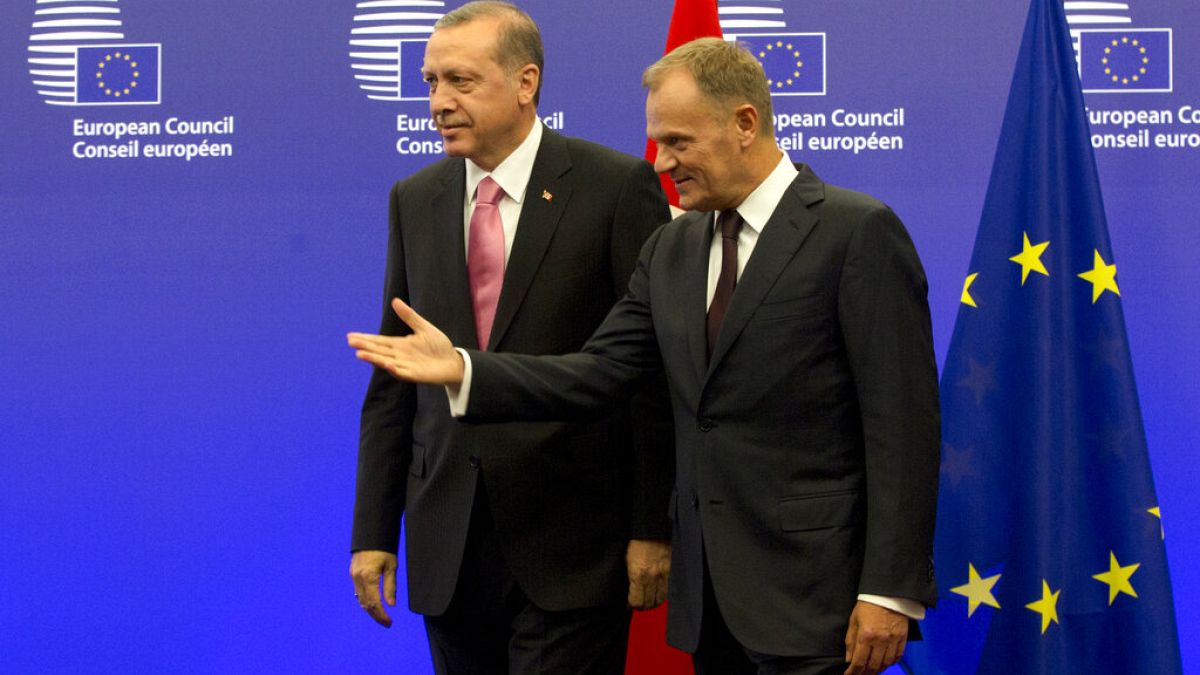
 World1 week ago
World1 week agoTurkey should play key role in peace in Ukraine, says Polish PM
-

 News1 week ago
News1 week agoSudiksha Konanki’s disappearance echoes Natalee Holloway case. Is it affecting travel?
-

 Lifestyle1 week ago
Lifestyle1 week agoNBA Stars Like Jalen Brunson Enlist Social Media Surrogates to Expand Reach in China

